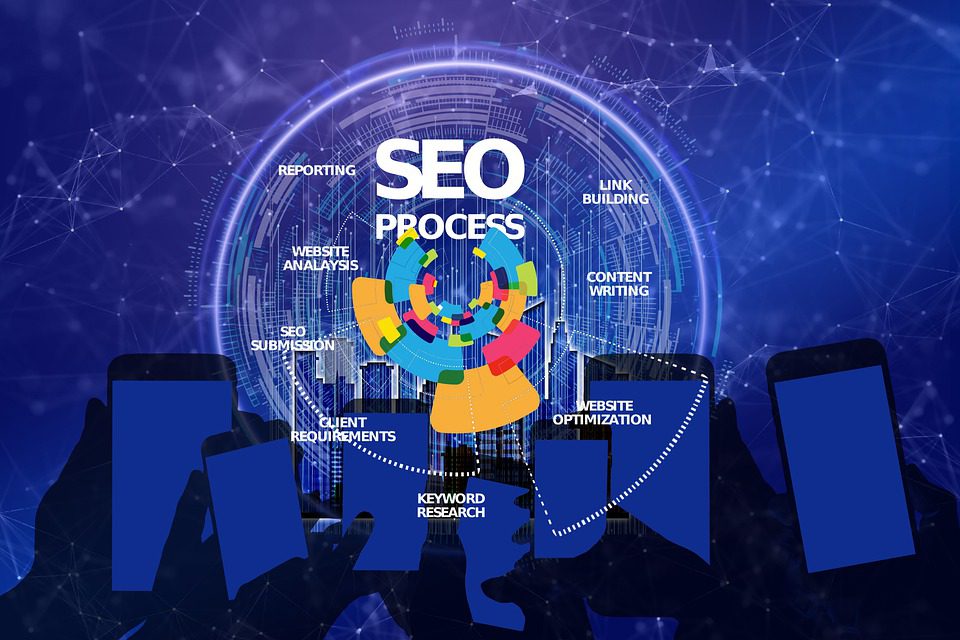
The power of SEO in content marketing has been a topic of discussion among marketers and entrepreneurs for years. But it’s only recently that we are beginning to fully understand the impact that SEO can have on our content.
From optimizing search engine rankings to increasing organic traffic, and driving brand engagement, SEO is becoming increasingly important for any successful content marketing campaign. In this article, we will explore the various ways in which SEO can help you get the most out of your content marketing efforts and why it should be an integral part of your strategy moving forward.
We’ll also take a look at some key tips that can help you improve your overall performance when it comes to creating effective content with SEO in mind. So let’s dive right into how SEO can be used as a powerful tool in your arsenal for successful content marketing!
Page Contents
Understanding How SEO Impacts Content Marketing

When it comes to content marketing, search engine optimization (SEO) is an invaluable tool. By optimizing content for keywords and phrases that people are searching for on the web, marketers can easily drive more traffic to their website or blog.
However, SEO isn’t just about finding the right words and phrases; it’s also about understanding how they impact your overall strategy. By incorporating SEO into your content creation process, you can ensure that your writing appeals to both search engines and human readers alike.
This requires a careful balance between creating quality content while still making sure it is optimized according to best practices to rank highly in SERPs. Additionally, by using tools such as Google Analytics or other online research methods, you can gain insight into what kind of language resonates with users most effectively and adjust accordingly.
Creating effective SEO-friendly copy doesn’t have to be complicated; however, mastering the basics will help you make informed decisions when crafting each piece of content. From keyword density and placement considerations to crafting meta descriptions that entice potential readers – there are many variables at play when optimizing text for maximum visibility online.
And although results cannot always be guaranteed – taking the time upfront to understand these principles will go a long way toward helping optimize success over time!
Analyzing the Benefits of Applying SEO to Your Content Strategy

When discussing the capabilities of SEO in content marketing, it is important to consider the benefits that come from applying SEO strategies. By optimizing content for search engine rankings, businesses can increase their visibility and attract more targeted audiences.
Through proper keyword research and placement within relevant titles, meta descriptions, and body text, effective SEO practices will help draw more organic traffic to a website or blog. Additionally, taking advantage of internal linking opportunities can improve user experience by creating pathways between related pages on a website.
Using appropriate keywords throughout webpages also helps ensure they are properly indexed by search engines so users can find them when searching for specific topics or queries. To maximize efficacy and overall success through SEO tactics, marketers should always be aware of what their competition is doing as well as any changes in Google’s algorithm updates that could affect ranking positions. By understanding how best to apply these principles to your content strategy you can reap the rewards associated with improved online presence such as increased customer engagement rates and higher conversion numbers – all essential elements when striving for digital success in this day and age.
Determining the Right Keywords for Maximum Visibility

When it comes to SEO content, the right keywords are essential for maximum visibility. Without properly chosen keywords, your content will be lost in a sea of competing articles and websites all vying for attention.
To find effective search engine optimization (SEO) words that work, start with an analysis of what people are already searching for. Researching the best long tail and short tail phrases can help you create content tailored to search engines so that when someone searches something related to your article topic they’ll find yours on top of their list of results.
Additionally, understanding how customers phrase their questions or comments online can give you insight into which words and phrases have the most relevance to them – this way you never miss out on potential traffic from customers who may not use technical terms in their searches but still need answers from experts like yourself! Finally, make sure there is adequate variation in your keyword usage; using the same word repeatedly will limit its effectiveness as well as potentially invite scrutiny from Google’s algorithms intended to detect spammy repetition. By combining multiple keyword strategies you should be able to uncover the most impactful words that bring traffic directly through organic search engine results pages!
Crafting Quality Content That Ranks Well in Search Engines

When it comes to SEO in content marketing, crafting quality content that ranks well in search engines is essential. Search engine algorithms are designed to analyze and rank webpages based on several factors including the relevance of keywords used, the structure of links within a page, as well as how engaging and informative the text is.
The key to successful ranking is creating high-quality material that satisfies both search engine crawlers and readers alike. This means using relevant keywords strategically throughout your article without overstuffing them; structuring internal links properly; incorporating multimedia for visual appeal; providing comprehensive information about your topic; while still making sure your piece has a natural flow and style.
Additionally, incorporating elements such as subheadings and lists can help draw attention from skimmers who only glance at an article before moving on. In addition to its overall structure and relevancy of topics discussed, producing content with human-like complexity is also important for optimal rankings across search engines. Quality writing should not be overly robotic or simplistic but rather have an appropriate level of complexity coupled with stylistic variations found among humans—such as varying sentence lengths—to keep readers engaged until the end while proving value through knowledge gained along the way.
Conclusion

Content marketing and SEO go hand in hand, especially when it comes to SEO for personal injury. By understanding how your content is found organically, you can increase the visibility of your website and reach a larger target audience.
Search engine optimization for personal injury attorneys requires focusing on keywords related to the practice area that potential clients are searching for. This includes using relevant titles and headings as well as creating compelling copy that encourages readers to take action.
Additionally, by optimizing internal linking, you can further improve search rankings and help visitors navigate various pages more easily. All in all, SEO is an invaluable tool for any business looking to boost its online presence and become more competitive in today’s digital world.































